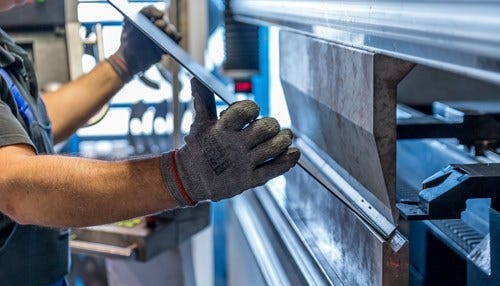Survey: Need for Skilled Workers as Companies Continue to Automate
 Survey shows many Indiana manufacturers want to grow but available workforce is limiting their growth.
Survey shows many Indiana manufacturers want to grow but available workforce is limiting their growth.
Subscriber Benefit
As a subscriber you can listen to articles at work, in the car, or while you work out. Subscribe NowA new report on the status of Indiana manufacturing indicates labor shortages are so bad, it’s preventing some companies from expanding their business. Yet, many remain optimistic about growth and demand for their products.
The 2019 Indiana Manufacturing Survey, commissioned by Indianapolis-based accounting firm Katz, Sapper & Miller, shows companies across the state are reporting a serious shortage of skilled and unskilled laborers.
“There is increasing challenge on the horizon in terms of workforce and workforce development of skilled workers,” warns Steve Jones, professor of finance at the Kelley School of Business at IUPUI. “The respondents indicate that it’s to the point where it’s impeding their plans for future growth.”
Jones, along with Mark Frohlich, associate professor of operations management at the Kelley School of Business at IUPUI, co-authored the report.
Hiring managers from about 120 manufacturers from throughout Indiana were surveyed for the annual report. Automotive suppliers and Industrial equipment each make up a little over 20 percent of the respondents. Aerospace and defense made up a little over ten percent.
“There appears to be a lack of interest in pursuing manufacturing careers amongst young people,” says Jones.
He says many production plants are finding it difficult to attract younger generations of skilled and unskilled workers to replace the growing number of retiring baby boomers.
“Any manufacturer trying to adapt to new technology, which most are in order to remain competitive, are experiencing this problem,” said Jones.
There is some good news from the survey, but it may be a double-edged sword. Of the employers who responded, 48 percent said the number of jobs continues to increase at their organizations, and nearly two-thirds expect the number of skilled jobs to increase as a result of implementing new technologies and automation.
“Very few are not optimistic about future growth in terms of demand for their products, in terms of sales, profit margins, and they’re planning for additional capital expenditure, although I think the capital expenditure is lower than it would be if they had the skilled workers,” said Jones. “So, there is good news there, I think that it’s just not as good as it could be if the workforce issues were not as serious as they are.”
Jones says many students express interest in the field of information technology. He says manufacturers need to do a better job explaining how that skill has a role in manufacturing.
Many of the managers who responded to the survey said they think the state needs to look at the possibility of a relocation tax credit for skilled workers to get them to move to Indiana.
“Other states are doing that, but not all states. And I think that from what I’ve seen in the data, I think we’re to the point where that something like that is necessary or somebody’s going to come up with an alternative that’s going to work,” said Jones.
Jones says students will benefit by focusing on STEM subjects in school, but that should not detract from the need for workers on the production room floor.
“Not every young person who goes into manufacturing needs to be a math wizard or even a science wizard, as long as they have abilities that can be used on the shop floor in manufacturing. So, in my opinion, an experiential learning opportunity can be just as valuable as STEM.”
Click here to read the results of the survey.
Jones says manufacturers want to grow, but workforce shortages are holding them back.
